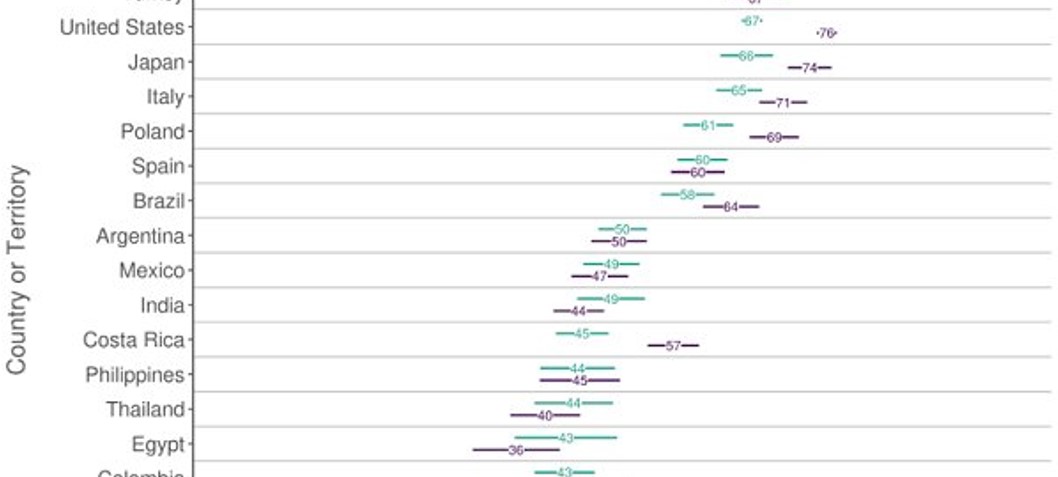As it looks to increase its efforts to combat the spread of climate change misinformation on its platforms, Facebook has also conducted a new study, in conjunction with the Yale Program on Climate Change Communication, to get a better sense of people’s attitudes towards climate change by region, and how concerned and knowledgeable they are about its impacts.
The study, which incorporates responses from over 75,000 Facebook users, specifically looks at how the views of men and women differ on various elements of the climate crisis, which provides some interesting perspective on the perceived causes and effects of rising global temperatures, and what will happen as a result.
As explained by Facebook:
“We found that a majority of people in about half of the countries and territories surveyed said they knew at least a moderate amount about climate change, led by Australia and Germany. However, in some countries, there were significant numbers of people who had little to no knowledge of climate change. This includes more than a quarter of people in Nigeria who reported that they had “never heard of it,” as well as substantial portions of people in Malaysia, Egypt, Saudi Arabia, and Vietnam.”

That provides some interesting insight into broader attitudes and understanding of the issue, and how each country is looking to address climate. That’s not to say that the regions in the lower portion of this chart are ignoring climate change, but it does suggest that information is not reaching these communities, many of whom will soon be dealing with bigger impacts as a result.
As noted, the study also highlights the varying attitudes between men and women on the climate crisis:
“While there is lower reported knowledge of climate change in less industrialized countries, there are larger gaps between genders in industrial countries such as the U.K., Canada, and the United States. We see significantly more men saying they know at least a moderate amount about climate change in these countries, highlighting the need to raise public awareness on the issue in both developed and developing countries.”
Of course, this is self-reported, so more men saying that they know more about climate change may not necessarily be correct. But it is interesting to contrast that with the below chart, which shows that, on average, women are more worried about the issue than men.

It’s an interesting window into a key societal issue, and how men and women are responding to such, based on Facebook users. That could suggest that these people are getting at least some of their climate info on the platform, which could make this an indicative measure of how Facebook is influencing the climate discussion.
Either way, as Facebook notes, with women set to be more heavily impacted by the climate crisis, it does make sense that they’re more concerned – yet, at the same time, there is a need for increased education about the broader crisis and its compounding effects.

As you can see here, across both genders, skepticism around the actual causes of climate change remain relatively high, despite ongoing discussion and Government action. Whether that’s an education problem, a result of ongoing misinformation efforts, or basic reluctance to accept established facts is hard to say, but the data here does show that we have a way to go in convincing many millions of people that direct action is needed, and will have an effect in ensuring quality of life moving forward.
There are some important data points here, on what’s arguably the key issue of our time. Which, based on these results, a large percentage of people will refute – but the data here does show that more needs to be done to address key knowledge gaps, and ensure that understanding of climate change science is shared equally, and that information is reaching the right audiences to increase awareness and action.
You can read Facebook’s full climate change research report here.

